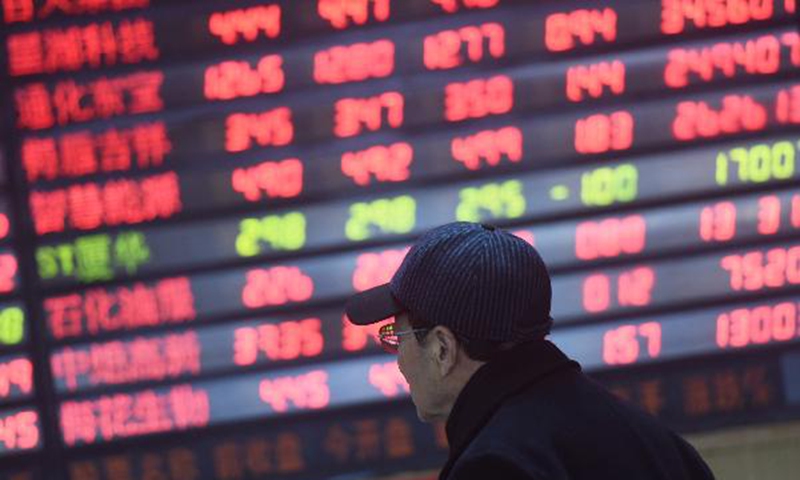
Photo: Xinhua
China's two main stock bourses have unveiled revised delisting rules in a zero-tolerance approach to problematic firms that taint the world's second-largest stock market.
The revised rules were released by the Shanghai and Shenzhen stock exchanges on Thursday, effective immediately, with stricter measures over financial fraud-triggered delisting than the draft rules including fraudulent financial reporting over two years in a row, shorter than the previously proposed three years.
If the amount faked tops 500 million yuan ($76.53 million) and outnumbers 50 percent of the affected firm's annual operating income (or net earnings, total assets at the end of the reporting period), both halved from the draft rule requirements, delisting will be triggered. Operation income fraud is newly added to delisting appraisal.
The revised rules also stipulate that controlling shareholders, actual controllers, directors, supervisors and senior executives of firms that are forced off domestic exchanges due to major violations of laws and regulations are banned from offloading their shares after administrative penalty notices are issued or judicial rulings are announced.
A stable and healthy capital market necessitates smooth entrance and exit for there to be a virtuous cycle for the market ecosystem, the China Securities Regulatory Commission (CSRC) said in a statement on its website on Thursday.
The country launched the STAR Market (China's Nasdaq-style sci-tech innovation board) in Shanghai where a registration-based IPO system is being trialed, and reforms were also kicked off in the ChiNext board in Shenzhen where registration-based IPOs were debuted. While broadening the entrance, the country also needs to ramp up efforts to ensure smooth exits, said the CSRC statement, hailing the delisting strengthening as a significant institutional arrangement to defuse listed firms' existing risks and keep a "zero tolerance" approach toward untrustworthy entities.
Delisting rules constitute an important guarantee to improve the quality of listed firms on the A-share market, where some "zombie" businesses unable to continue operations have loitered around the market over the years, severely inhibiting the efficiency of the capital market, Wu Jinduo, head of fixed income at the research institute of Great Wall Securities, told the Global Times on Friday.
"With the two stock bourses opting for much tighter rules for financial fraud-induced delistings and moving to not simply take into account earnings but focus on sustainable operational capacities, the country draws a line by protecting new listings as well as stepping up its push to eliminate zombie firms and harden penalties on fraudsters, thereby creating a virtuously cycling ecosystem for the capital market," Wu remarked.
Since 2019, 48 firms have exited the market via multiple channels, including 26 forced delistings — more than double the combined total of forced delistings in the prior six years — the CSRC revealed in the statement, vowing to intensify delisting supervision, ramp up the setup of a mechanism for investor protection, and toughen oversight and accountability throughout the course of IPO, refinancing, mergers and acquisitions, delisting and regulatory law enforcement.
The Shanghai and Shenzhen markets are home to over 4,100 listed firms with a total market capitalization of nearly 80 trillion yuan and trading accounts totaling 175 million. A-share firms whose business revenues account for half of the country's GDP are a pillar of the economy, the Securities Times reported in December.
A-shares are secondary only to US stocks in market canalization terms, the report said.




